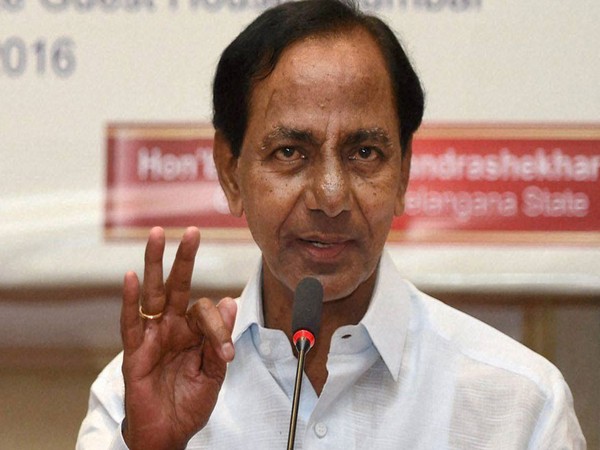Telangana Chief Minister K. Chandrashekhar Rao has urged the Centre to encourage fastest growing States with tax incentives.
Addressing the 4th meeting of the Governing Council of National Institution for Transformation India (NITI Ayog) in New Delhi on Sunday, the Chief Minister said that the growth of India lies in the growth of its states. Therefore, he said that the fast-growing states must be encouraged by tax incentives, if not by additional transfers from central funds. Further, he said that the country needs to focus on agriculture and allied activities as an integrated sector and dairy, poultry, goat and sheep rearing, and fisheries should also be exempted from income tax. “As a part of the initiatives for doubling the income of farmers, MGNREGA funds should be tagged to agriculture with 50% contribution from farmers to reduce the cost of their investment,” he said.
The Chief Minister showcased ‘Rythu Bandhu’ scheme and other measures being implemented by his government for the welfare of farmers. He said that the Rythu Bandhu (friends of farmers) scheme provides Rs.4,000/- per acre per crop as agriculture input assistance. “As there are more than 98% small and marginal farmers in Telangana, it makes sense to cover all the farmers to avoid unnecessary screening. The scheme also envisages “give it up” provision where farmers can surrender their cheques. I would also like to allay unfounded fears of some that Rythu Bandhu Scheme will distort the financial market. This “agricultural investment assistance scheme” does not distort the credit system, agriculture product prices and cropping pattern etc.,” he said.
“Another scheme started by us is “Rythu Bhima Yojana” for all the farmers in the State aged 18 to 60 years with the public sector giant ‘LIC” insuring each farmer for Rs.5.00 lakhs in case of his / her unfortunate death due to any reason whatsoever. The State Government bears the insurance premium costing about Rs.1,000/- Crores per annum. Formal launch of this scheme is scheduled on 15th August 2018 covering about 50 lakh farmers,” he said.
The Chief Minister said that the third most important area of agriculture reform was providing clear title over farm land. “We have taken up a massive exercise of purifying the title of over 50 lakhs farm holdings in the State and have given them a Pattaadar Pass Book with embedded 17 security features. We are also planning to integrate registration and mutation process in a seamless manner. I am sure, with the help of express mutation, we would be able to develop a robust mechanism for hassle free land transactions in rural areas. Over a period of time, we would like to usher in similar reforms for urban properties as well,” he said.
KCR said that the State Government was making massive investments in irrigation to help the farmers. “Kaleshwaram and Palamoor Ranga Reddy Irrigation Projects, on rivers Godavari and Krishna, on completion are going to become the life line of Telangana. These Projects shall provide new irrigation facilities to farmers in over 26 lakh acres and in stabilization of 18 lakh acres in 24 Districts of Telangana. We are setting up new standards in completing various Mega Projects without any time and cost overruns,” he said.
The Chief Minister said that his government has created major infrastructure development for the overall growth of agriculture sector by constructing 356 agricultural godowns in the past three years with a storage capacity of 18.30 lakh MTs at a cost of Rs.1050 Crores. This is in addition to 170 godowns with a capacity of 4.17 lakh MTs storage capacity, and these godowns are distributed throughout the State depending upon potential for usage. “This is helping farmers in many ways, like storage of agriculture produce in order to beat market fluctuations, storage of agriculture inputs like fertilizers, seeds etc.,” he said.
KCR said that the States should learn from each other to accelerate the overall pace of development in the country.
“The country is facing lots of challenges in the areas of external affairs, defence and macro-economic and global issues. Therefore, in the changing global scenario, it should continue to give due attention to those issues and at the same time leave more space to the states in doing work in such sectors as health, education, urban development, agriculture and rural development and also remove the rigidness of certain centrally sponsored schemes that curtail the initiatives of the state government,” KCR said in his concluding remarks. (INN)

